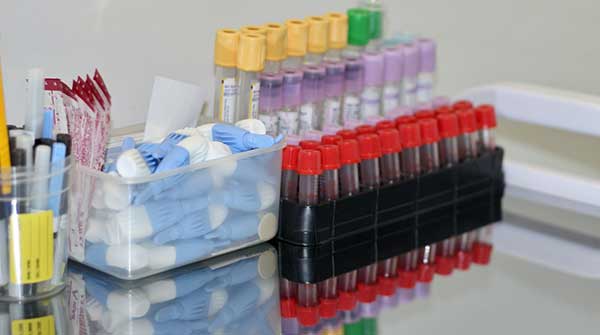“Bad” cholesterol not the only culprit linked to higher likelihood of heart disease
New findings from the University of Alberta have revealed a groundbreaking discovery in the realm of cardiovascular health.
Contrary to the prevailing belief that “bad” cholesterol (LDL-C) was the primary culprit behind increased risks of cardiovascular disease, a trio of studies, including a landmark global investigation, has identified another form of cholesterol known as Remnant Cholesterol (RC) as a potent risk factor for individuals worldwide.
RC, a byproduct of triglyceride metabolism from dietary fat and the body’s own cholesterol stores, was confirmed as a substantial risk factor for coronary heart disease, heart attacks, and strokes. These findings, drawn from genomic data collected from nearly one million participants across Africa, Asia, North America, and Europe, mark the first large-scale evidence of a causal link between elevated RC levels and cardiovascular illnesses.
 Paolo Raggi |
 Spencer Proctor |
 Dean Eurich |
Paolo Raggi, the senior author of the study and a professor of cardiology in the Faculty of Medicine & Dentistry, emphasized the significance of the discovery, stating, “This tells us that the health risk posed by high RC is of greater concern than the traditional LDL cholesterol, which is our current goal of prevention and therapy.”
The research revealed that individuals with elevated RC levels faced a 1.5 times higher risk of coronary heart disease, a 1.6 times higher risk of heart attacks, and a 1.2 times higher risk of strokes.
Moreover, two studies based on Alberta data demonstrated the correlation between high RC and heart disease risks for Canadians. One of these studies, encompassing 14,000 middle-aged and older Albertans, found that elevated RC levels were linked to a higher risk of developing heart disease.
The studies also showed that RC levels remained elevated regardless of whether individuals were already on medication for LDL-C or had normal or low LDL-C levels. Spencer Proctor, a professor in the Division of Human Nutrition within the Faculty of Agricultural, Life & Environmental Sciences, stressed the importance of recognizing RC as a risk factor, saying, “For the first time, we are showing that one of those risk factors could be RC.”
Given that RC screenings are less common than LDL-C assessments in Canada, Proctor warned that overlooking RC as an additional risk factor for those already susceptible to heart attacks could be a missed opportunity for early intervention.
Dean Eurich, a professor in the U of A’s School of Public Health, added, “If LDL cholesterol is the only type measured and the level is found to be quite low – perhaps because it is being controlled by medication – that may seem like the risk of a cardiovascular event is lower. But that is an incomplete diagnostic picture, which should include assessment for RC.”
The research teams utilized data from Alberta’s Tomorrow Project, a long-term study initiated in 2000 to monitor the health of 55,000 adults in the province. Their analysis revealed that individuals with heart disease had 15 percent higher RC levels in their blood, while LDL-C levels were significantly lower at seven percent.
Moreover, for every unit increase in RC in the blood, there was a 150 percent higher risk of a heart attack, compared to a 73 percent higher risk associated with LDL-C. Proctor noted that, in this context, LDL-C was less helpful in predicting future risk due to the possibility of individuals being on medication.
A related study focused on individuals with diabetes yielded similar results, showing that they had 22 percent higher RC levels, a nearly five percent greater incidence of cardiovascular disease, and a 50 percent higher likelihood of having other risk factors like obesity. They were also 30 percent more likely to be on cholesterol-lowering medication, resulting in 23 percent lower LDL-C levels.
Given that diabetes already heightens the risk of cardiovascular disease, Proctor emphasized the importance of RC measurements in monitoring heart health for diabetics.
In conclusion, these studies collectively emphasize the significance of RC as a factor that cannot be overlooked when assessing cardiovascular disease risk. Including RC alongside LDL-C measurements can enhance the accuracy of predicting heart attacks and facilitate timely intervention through medication, lifestyle changes, and dietary modifications.
These findings have led to calls for revisions in both Canadian and global medical guidelines to include routine RC measurements. “The medical community worldwide needs to recognize remnant cholesterol as a significant player in influencing the cardiovascular health of the population,” Paolo Raggi said. Such guidelines, he added, changes would provide doctors with more comprehensive information about patients on LDL-C-lowering medication who may still be at risk of heart attacks.
This research may also, he said, pave the way for exploring whether existing medications used for LDL-C management can also reduce RC levels, potentially leading to the development of new drugs aimed at improving heart health.
Proctor summed up the research’s implications thus, “We need to continue exploring what can help complete the diagnostic picture for everyone – with or without diabetes – at risk of heart disease.”
| Staff
The opinions expressed by our columnists and contributors are theirs alone and do not inherently or expressly reflect the views of our publication.
© Troy Media
Troy Media is an editorial content provider to media outlets and its own hosted community news outlets across Canada.


